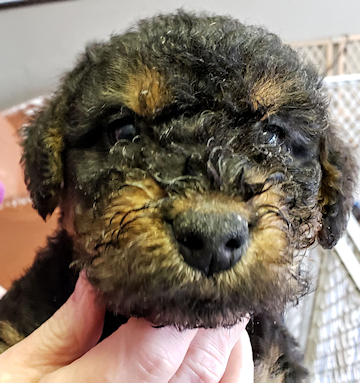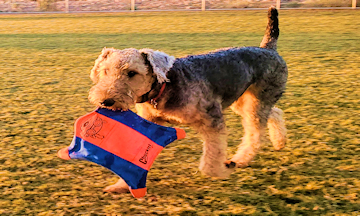Cancer in Dogs
Cancer in Dogs
Much like in humans, is a complex and diverse group of diseases characterized by the uncontrolled growth and spread of abnormal cells.
It can affect any part of a dog’s body and can take on various forms, with different levels of severity and prognosis. Some common types of cancer in dogs include:
Cancer in Dogs
- Lymphoma: This is one of the most common types of cancer in dogs. It affects the lymphatic system and can cause swollen lymph nodes, lethargy, weight loss, and loss of appetite.
- Mast Cell Tumors: These are a type of skin tumor that can vary in appearance and behavior. They might be benign (non-cancerous) or malignant (cancerous), and they often appear as lumps or bumps on the skin.
- Osteosarcoma: This is a type of bone cancer that usually affects the limbs. It’s aggressive and often requires amputation of the affected limb as part of the treatment.
- Hemangiosarcoma: This cancer originates from blood vessel cells and commonly affects the spleen or heart. It’s known for being highly aggressive and difficult to treat.
- Melanoma: Similar to humans, dogs can also develop melanoma, a type of skin cancer that arises from pigmented cells. It can occur in the mouth, skin, or even in the eyes.
- Carcinomas: These are cancers that arise from epithelial cells and can affect various organs such as the skin, mammary glands, lungs, and more.
- Transmissible Venereal Tumors: These are unique cancers in dogs that can be spread through sexual contact. They usually appear as genital tumors.
Cancer symptoms in dogs can vary widely depending on the type, location, and stage of the disease. Some common signs to watch out for include:
- Lumps or bumps on the body
- Changes in appetite and weight loss
- Lethargy and decreased activity
- Lameness or difficulty walking
- Changes in bathroom habits
- Bleeding or discharge from any body opening
- Difficulty breathing or coughing
- Changes in behavior or personality
If you suspect that your dog might have cancer, it’s important to consult a veterinarian. Diagnosing cancer often involves a combination of physical examinations, imaging (such as X-rays and ultrasounds), and potentially biopsies. Treatment options can vary depending on the type and stage of cancer, and may include surgery, chemotherapy, radiation therapy, and in some cases, immunotherapy.
Regular veterinary check-ups and early detection are crucial for increasing the chances of successful treatment and improving your dog’s quality of life.
Cancer in Dogs
#######
Best Airedale Dog Toy
The Airedale Terrier – – – He is swift, formidable, graceful, big of brain, an ideal chum and guard. ….To his master he is an adoring pal. To marauders he is a destructive lightning bolt.”
+++++++++++++++++++++++
Our Airedale Terrier Youtube channel.
****
Disclaimer for all related content: *Please note, this channel is not intended for children under the age of 18. I am not a professional dog trainer or veterinarian. Any tips, product ideas, food, treats, suggestions or advice are simply my opinion only and what works for me. My content is not intended to replace your vet/trainer recommendations. Please always seek professional guidance before taking any action. Please foster, feed and train dogs at your own risk. FTC: My content may include affiliate and/or sponsored links which means your support helps move our mission forward.




